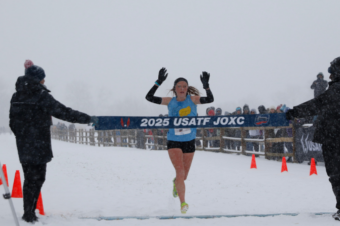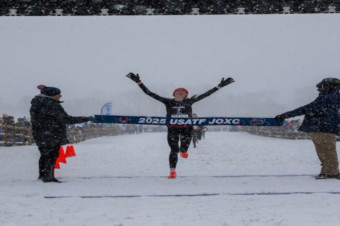

How to Handle Spring Rainouts Without Losing Momentum
BlogMulti-SportOutdoorProduct Reviews/Top Ten Lists/Resources/Tips April 11, 2025 Lauren Keating 0

Spring brings renewed energy to register for team sports and to prepare for a fresh season of competition. Unfortunately, spring sports also mean unpredictable weather.
Rainouts are a common disruption across nearly every outdoor sport—from baseball and soccer to track and field, tennis, and lacrosse. For athletes who thrive on routine, momentum, and consistent performance, unexpected rain delays or cancellations can feel like a motivation killer.
But while the weather may be out of your control, how you respond and adapt to inclement weather isn’t.
Here’s how athletes across all levels and sports can handle spring rainouts without losing their competitive edge.
1. Modify Your Routine
One of the best ways to stay sharp during rainouts is by keeping a sense of normalcy. If you have a game or practice scheduled, don’t scrap your plans altogether. Instead, modify them.
If the plan was to compete at 3 p.m., use that time window to get in a solid workout, a mental training session, or even a recovery-focused activity like yoga or stretching. Keeping your body in sync with its expected rhythms helps maintain performance readiness.
2. Stay Mentally Prepared
Rainouts offer a perfect opportunity to sharpen your mental game. Watch videos online to get performance tips, review strategies with teammates, or visualize yourself performing at your best. Mental rehearsal has been proven to activate the same neural pathways as physical practice.
Athletes in sports like baseball, tennis, and track can run through mental scripts of techniques, race starts, or game scenarios. Visualization helps reduce performance anxiety and keeps your confidence intact when you’re back on the field.
3. Cross-Train for Variety and Balance
Just because you’re rained out of your sport doesn’t mean you can’t move. Cross-training is a great way to stay fit while reducing burnout and injury risk. Soccer players might hop on a stationary bike; track athletes could try a HIIT session indoors; baseball players might work on mobility or core stability.
Cross-training also keeps your mind engaged and prevents the frustration that can come from simply waiting out the weather.
4. Use the Time to Heal and Recover
Spring sports seasons can be grueling with back-to-back games, meets, or matches. A rainout might be a blessing in disguise—a rare moment to rest and recover.
Use the downtime to check in with your body. Ice those nagging aches, hydrate, get extra sleep, or spend time on prehab routines.
When managed wisely, recovery days can prolong peak performance and reduce the risk of overuse injuries.
5. Focus on Team Building
For team sports, rainouts are a chance to strengthen chemistry off the field. Teams can hold meetings or bonding activities like going to the movies together. Shared experiences—whether training or downtime—build trust and cohesion.
6. Stay Positive and Adaptable
Rainouts test an athlete’s mindset. Do you crumble when your schedule changes, or do you adapt and find new ways to improve? Maintaining a positive, growth-focused outlook is essential. Some sports continue during a light rain. This takes additional mental resilience and the ability to adapt to competition in less-than-ideal conditions. To prepare for this, train in all weather conditions when safe such as when it’s windy or in the rain.
7. Keep a Long-Term Perspective
One rainout won’t define your season. Stay grounded by remembering your bigger goals—whether that’s a personal best, a team championship, or a college recruitment opportunity. Progress isn’t always linear. Every athlete faces disruptions; it’s how you respond that sets you apart.
Journaling, goal setting, or speaking with a coach or mentor can help you maintain clarity and motivation. When you come back from a delay with more focus than ever, you’ll be a step ahead of the competition.









No comments so far.
Be first to leave comment below.